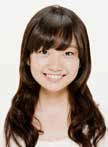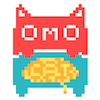Donna Models Founder Junko Shimazaki
A Role Model for Model Management
Donna Models Founder Junko Shimazaki
Junko Shimazaki runs Donna Models, one of the leading agencies of foreign models in Japan, and is mother-agent for Japan’s international supermodel, Tao Okamoto. She promotes Hoorsenbuhs jewelry and also co-owns Asian eatery PINGTUNG Eat-In Market, Los Angeles, where TJ sat down with her to talk modeling.
TJ: How did you get into the modeling industry?
SHIMAZAKI: I met a woman in the fashion business who thought I would be good at it, and I thought, “Why not?” Once I started I loved it, and decided, “Forget about everything else. This is the job for me!” That was almost 29 years ago. I tried a couple of agencies before starting my own - Donna Models - in 1995. In the beginning, it was just my friend and I, but it’s been 18 years and now it’s one of the biggest foreign model agencies in Japan
Doraemon Debuts on Disney
JAPAN’S beloved manga and anime character Doraemon has made it to Disney! The TV and film series “Doraemon” is being broadcast in the United States for the first time after playing to a huge following in Asia over the past four decades. Disney XD, a children’s channel available in 78 million households, began broadcasting 26 English-dubbed episodes five times a week in July 2014.
Holmes' Schooling
NHK’s new twist on Sherlock Holmes
By Charlotte Goff
FEW could doubt that Sherlock Holmes is the world’s most famous fictional detective. Generations of readers have fallen for this master of deductive reasoning, prompting speculation as well as the fan-fiction about parts of his background not recorded by Sir Arthur Conan Doyle. In an imaginative twist on the classic detective stories, NHK has embarked on a new and unconventional Sherlock Holmes series – in which puppets and voice actors are the stars. From October 2014, viewers can expect plots full of the suspense that have hooked readers of the franchise for more than a century, distilled into a fresh and exciting form. Set in a 19th century boarding school, scriptwriter Koki Mitani brands the show a “racy school mystery.”
The forthcoming series’ action centers on fifteen-year-old Sherlock, whose extraordinary observational talents see him labelled a nerd and cast aside by his peers. This societal rejection leads Sherlock into the path of newcomer to the school, John H. Watson. Watson is fascinated by the very attributes Sherlock possesses that enforce his rejection. The two become friends after Sherlock turns his mind to clearing Watson of accusations leveled against him in the opening episode. Later, the pair work together to take on the challenges hurled increasingly in their direction. The school setting is a first among Sherlock Holmes TV dramatizations. It offers a setting to which the show’s target audience – Japanese high school students – can relate. More than a simple detective drama, the new series is a coming-of-age tale and a platform from which to learn about growing up, logical thinking, justice, and having the courage to defend it.
Garrity's Japan
Editor’s Insight
Garrity’s Japan
A Visit to the Shirakawa Barrier
The following is a continuation of Robert Garrity’s story describing his walk across Japan; a journey replicating haiku poet Matsuo Basho’s 1,500-mile journey from Fukagawa, Tokyo to Japan’s northern wilderness, as detailed in Basho’s world-famous travel diary, “Oku no Hosomichi.” Garrity began the first leg of his journey in the summer of 1994, and he continues walking different segments each time he returns to Japan.
Shortly after my military assignment to Japan in late 1957, I developed an interest in Japanese history. I have had an interest in history most of my life, so my newly developed interest in Japanese history was not a surprise. In the late ‘50s, however, the availability of books on Japanese history in English was rather limited. I read every book I could beg, borrow, or even steal. Occasionally in my reading, I would come across a geographical location called the Shirakawa Barrier.
ONE OK ROCK
Originally a five-piece band formed in 2005, the four-member band ONE OK ROCK now includes singer Taka (son of Japanese singers Masako Mori and Shinichi Mori), guitarist and founder Toru, bassist Ryota and drummer Tomoya. Fusing emo, rock and heavy metal with mixed Japanese and English lyrics, the band has gone from selling out shows in Japan to rocking fans overseas. Tokyo Journal Executive Editor Anthony Al-Jamie caught up with Taka and Ryota before the band’s performance at the Pomona, California leg of the Vans Warped Tour; a two-month nationwide tour that went to 43 cities.
TJ: Can you tell me about your background? Where did you guys grow up?
TAKA: I was born in Shibuya, Tokyo. I grew up in Osaka and San Francisco.
RYOTA: I’m a bassist from Osaka. When I was six years old, I started hip-hop dancing and when I was 16 years old, I joined the band.
John Lennon & Yoko Ono
New York, 1971 – 1980
I first saw John and Yoko at a benefit concert at the Apollo Theater shortly after they arrived in New York City in 1971. I’d taken a photo of them backstage and dropped off some copies to their apartment, which was around the corner from mine in the West Village, but I didn’t make any further connection with them then. A few months later I was asked to take photos of John and Yoko for a story about Elephant’s Memory, their backing band on the new album they were recording. That night I went to their recording studio, took some photos of them all together, and they soon contacted me to use them in the album package.
Chronicles of the Going Home Club
Chronicles of the Going Home Club (Kitaku-bu Katsudō Kiroku)
The new anime series “Chronicles of the Going Home Club,” based on a popular manga, was first broadcast on Nippon  Television Network (NTV) on July 4, 2013. Natsuki Ando, a high school freshman, wondered what kind of club activity she should join in school. She had decided not to join any club to avoid trouble with senior students, but then she found Kitaku-bu (The Going Home Club), a club for those who don’t join any club. The leader, Sakura Domyoji, is just a normal student, and the other members are a little eccentric. One of their main activities is “to do fun things” and their goal is to have maximum fun after school. The show features the club’s activities.
Television Network (NTV) on July 4, 2013. Natsuki Ando, a high school freshman, wondered what kind of club activity she should join in school. She had decided not to join any club to avoid trouble with senior students, but then she found Kitaku-bu (The Going Home Club), a club for those who don’t join any club. The leader, Sakura Domyoji, is just a normal student, and the other members are a little eccentric. One of their main activities is “to do fun things” and their goal is to have maximum fun after school. The show features the club’s activities.
Fantasista Doll
Fantasista Doll
A new original anime series “Fantasista Doll” began broadcasting on July 6, 2013 on the MBS, TOKYO MX and BS11 TV stations in Japan. The creative producer for the series is Goro Taniguchi, known for his work as director of “s-CRY-ed,” “Planetes” and “Code Geass: Lelouch of the Rebellion.” In this new series, the story surrounds Uzume Uno, a young student and former champion of a trading card game competition. She is entrusted with a special device containing five powerful Fantasista Dolls. The dolls are sentient virtual beings that reside within the cards, which now are controlled by their new master, Uzume. By playing the cards in different combinations, Uzume can equip the “Sistas” with an amazing variety of costumes and weapons.
stations in Japan. The creative producer for the series is Goro Taniguchi, known for his work as director of “s-CRY-ed,” “Planetes” and “Code Geass: Lelouch of the Rebellion.” In this new series, the story surrounds Uzume Uno, a young student and former champion of a trading card game competition. She is entrusted with a special device containing five powerful Fantasista Dolls. The dolls are sentient virtual beings that reside within the cards, which now are controlled by their new master, Uzume. By playing the cards in different combinations, Uzume can equip the “Sistas” with an amazing variety of costumes and weapons.
OMOCAT
OMOCAT Creator of Cute and the Surreal is Changing People's Views of Anime
Tokyo Journal met with OMOCAT, an anonymous illustrator inspired by anime and video games, who has not only art under her belt, but a fashion line and video game to boot. She specializes in animated illustrations (gifs), doing a wide variety of work ranging from comics, shirt designs, and typography. Learning her trade mainly online, as well as learning illustration and design in college, this young entrepreneur has broken into the Japanese and American markets all from the comfort of her Californian home. She has self-published six books to date and her most recent project of creating the surreal psychological horror roleplaying video game OMORI was successfully funded $203,300 through 5,910 backers on Kickstarter on June 5, 2014, far surpassing her goal of $22,000.
SHIRO-A
A Revolution in Live Entertainment
SIRO-A is a performance group, originating from Sendai, that utilizes modern technology to create optical illusions, with dance set to techno music while incorporating the classic arts of mime and shadow puppetry. The group, who won the Spirit of the Fringe Award at the Edinburgh Festival in 2011, finished a Japan tour in July and will be appearing at the Leicester Square Theater in London from September to January of next year. The members of SIRO-A, which means “belonging to no group and impossible to define” reside in Yokohama near their practice studio. Group member Abe Toshinori talked with Tokyo Journal Executive Editor Anthony Al-Jamie about the group’s art form, their comparisons to the Blue Man Group, and plans for the future.




















